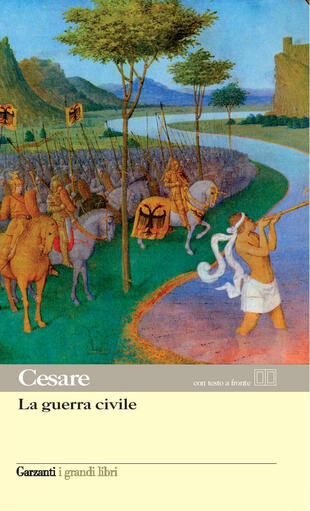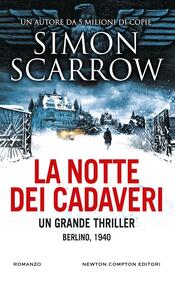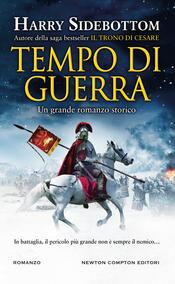

La guerra civile
-
Tradotto da: Elena Zaffagno
Tutti i formati dell'opera
Acquistalo
Sinossi
Introduzione, traduzione e note di Elena Zaffagno
Scritto in un latino disadorno, ma esemplare per chiarezza ed essenzialità, il De bello civili (45 a.C.) è la ricostruzione storica del conflitto che nel 49-48 a.C. vide Cesare, trionfatore in Gallia e paladino del partito democratico, scendere in armi contro Pompeo, sostenuto dal senato e dall’aristocrazia. Diario di campo o testo di propaganda politica? Vera opera storiografica o resoconto autobiografico senza pretese letterarie? Pur non del tutto esenti da partigianeria, come riconobbe lo stesso Cicerone, i Commentarii trovano un felice equilibrio tra oggettività e partecipazione emotiva, tra res gestae e ideologia. Nel susseguirsi di delibere del senato, battaglie e assedi, episodi di valore e tradimenti, più che i due condottieri nemici il vero protagonista del racconto è l’esercito: la moltitudine spesso anonima di soldati costretti a sopportare marce pesanti, fame, malattie, crudeltà e abusi di potere per combattere una guerra che non è la loro.
- ISBN: 881136728X
- Casa Editrice: Garzanti
- Pagine: 352
- Data di uscita: 01-04-2004
Recensioni
I am sure I would have enjoyed this book even more if only I brushed up on my Roman history. But I still enjoyed the attention to detail that Caesar practiced and his magnanimity towards those he defeated. Counting the times a shield was pierced by arrows as a sign of courage...it should be a term w Leggi tutto
This book contains more than Caesar's writings on the Civil War; "The Alexandrian War", "The African War", "The Spanish War" are also included in this Penguin Classics edition - none of those pieces penned by him. I only read the first piece, the appendices, and the insightful intro written by Jane
This lone star is not for Caesar, it is for this wretched translation. After slogging through 70 or so pages feeling like my brain was coated in molasses, I decided to try a different translation. Right choice. For example, here's how this volume translates a particular section: "He leaves no point un Leggi tutto
"Alea iacta est" ("the die is cast") -Julius Caesar upon crossing the Rubicon, (according to Suetonius) Caesar continues his narrative from the Bello Gallico into another several books of commentaries on his civil war with Pompey the Great and the Roman Senate. Caesar does not dwell long on the ca
"Gneo Domicio, prefecto de la caballería, que rodeaba a Curión con unos pocos jinetes, le exhorta a que busque la salvación en la huida y se dirija al campamento, y le promete no apartarse de su lado. Pero Curión, asegurando que jamás volverá a presencia de César habiendo perdido el ejército que aqu Leggi tutto
Kitap, Cumhuriyet'in son döneminde yaşanan iç savaşa dair Sezar'ın kendi kaleminden yazdıklarından oluşuyor. Dönem olarak, iç savaşın tamamını değil ancak en kritik dönemi kapsayacak şekilde, Sezar'ın Galya'yı fethinden sonra, M.Ö. Ocak 49'da Rubicon'u geçerek Roma'ya yürümesi ile başlayıp, Pompeius Leggi tutto
An army marches on its stomach Like innumerable warlords before him, Napoleon Bonaparte recognised that logistics were the lifeblood of any military campaign. Success or failure could hang by the thread of an adequate or inadequate level of supply. Imagine Agincourt if Henry's men had exhausted their Leggi tutto
-El zorro relatando el cuidado y la vigilancia del gallinero.- Género. Biografía (en cierto modo, aunque es algo más). Lo que nos cuenta. Descripción, de la mano del propio protagonista, de los eventos políticos que suponen finalmente el estallido de la Segunda Guerra Civil en la Antigua Roma y que no Leggi tutto
nam quae volumus ea credimus libenter et quae sentimus ipsi reliquos sentire speramus perché crediamo volentieri ciò che speriamo e speriamo che gli altri provino ciò che noi stessi proviamo La guerra civile Cesare Abbandonato il progetto di leggere l'opera in traduzione fatta de me medesima (purtroppo Leggi tutto
Citazioni
Al momento non ci sono citazioni, inserisci tu la prima!
























